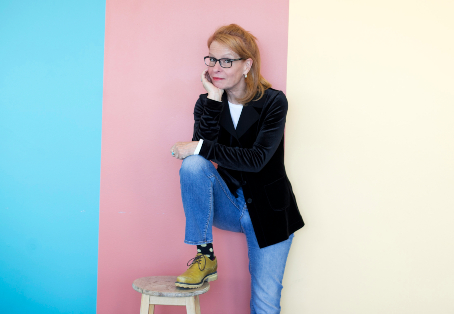When it first opened its doors 32 years ago, Montreal’s École nationale de l’humour (ÉNH) was itself the target of jokes.

“My first interview with Radio-Canada was like being in a boxing ring,” says Louise Richer, EMBA’16 (left), the ÉNH’s founder and director. “[People] said … that we were trying to teach something that couldn’t be taught.”
No one says that anymore. The ÉNH has trained hundreds of comics, including some of Quebec’s best-known talents, like Martin Matte, Louis-José Houde and Cathy Gauthier.
Almost a third of this year’s students are from France, and the ÉNH is involved in programs in Switzerland and the Ivory Coast.
Richer gives part of the credit for the ÉNH’s increasing internationalism to the 16 months she spent earning an MBA from a joint McGill/HEC Montréal program. “At the venerable age of 61!” she says, laughing.
“But seriously, it gave me more confidence in my management skills and put me in a position to tackle specific projects, like getting the school known throughout the French-speaking world.”
The ÉNH is part of a vast ecosystem of comedy in Quebec that has developed since the creation of the Just for Laughs Comedy Festival in 1983.
“There aren’t many places where the [status] of comedy is so strong in proportion to the population,” says Andy Nulman, BCom’83, who directed the Just for Laughs Comedy Festival from 1985 to 1999, and then ran all the Group Just For Laughs’ festival and television activities from 2008 to 2013. “In Quebec, it’s a big business.”
Sugar Sammy, one of Quebec’s most prominent comedians, agrees. “The industry is stronger than ever. There are more comics, more shows and more producers.”
Sammy, known as Samir Khullar when he was pursuing a degree in cultural studies at McGill in the late nineties, performs in four languages — English, French, Punjabi and Hindi. He is one of the rare entertainers who is as popular with francophone audiences as he is with anglophones. He recently served as a judge on La France a un incroyable talent, one of the most popular TV shows in France.
“As comics, we are very lucky to be able to build careers in such a small, but rich market,” says Virginie Fortin, BA’08. She has been touring Quebec with her “silly and philosophical” show, Du bruit dans le cosmos (Noise in the cosmos). She also co-starred in the Radio-Canada TV comedy Trop.
Richer believes Quebecers have an appetite for home-grown comedy. “[We] export a lot of music, but we also listen to a lot of foreign music. For comedy, it’s the opposite. We very much buy local.”
It’s not easy to define what exactly distinguishes Quebec comedy. Nulman sees a mix of American, French and British influences. “We’ve moved beyond the monologue era of Yvon Deschamps, Jean-Guy Moreau and Clémence Desroches, and beyond American-style stand-up. Quebecers have a strong preference for shows with stagecraft, lighting and costumes. It’s peculiar to Quebec.”
Sugar Sammy says Quebecers are comfortable with self-mockery, something he fully exploits in his own shows. “Most Quebecers can laugh at themselves. They don’t take themselves as seriously as, say, the French do.”
Nulman firmly believes Quebec’s distinctive take on comedy can succeed elsewhere.
The proof, he says, is a project he’s “obsessed with” at the moment: launching a Broadway musical performed in English based on Quebec playwright Michel Tremblay’s darkly comic Les Belles Soeurs. The first read-through of Les Belles, which he describes as “Quebec’s jewel,” attracted some 150 New York producers.
Fortin says it’s important to think about who your jokes are targeting and why.
“I’m white and I had a comfortable upbringing, so why would I be laughing at people who haven’t had it as easy as I have?” she asks. “When I started, my first show had a joke about the homeless. I rewrote it because what we should really be able to laugh at now are people with three cars and two garages. I made the decision to hit above the belt rather than below it.”
Sugar Sammy’s specialty is finely calibrated provocation. “You have to take risks and accept that things can be interpreted in many different ways. Society has become more sensitive, it’s a fact.”
He believes the biggest challenge for comedians today is that audiences are now more demanding. “They expect the writing to be surprising, the work more refined, a show that’s more carefully crafted.”
Nulman, who created the popular Just for Laughs Nasty Show, doubts the corrosive humour it showcases will survive. Still, he believes comedy needs to test boundaries to be successful, a message he regularly shared with the Just for Laughs staff.
“I told them: ‘No one is going to kill Just for Laughs, so don’t worry about making mistakes. There will be things that blow up in your face.”
by Jean-Benoît Nadeau, BA’92 (Translated by Julie Barlow, BA’91)